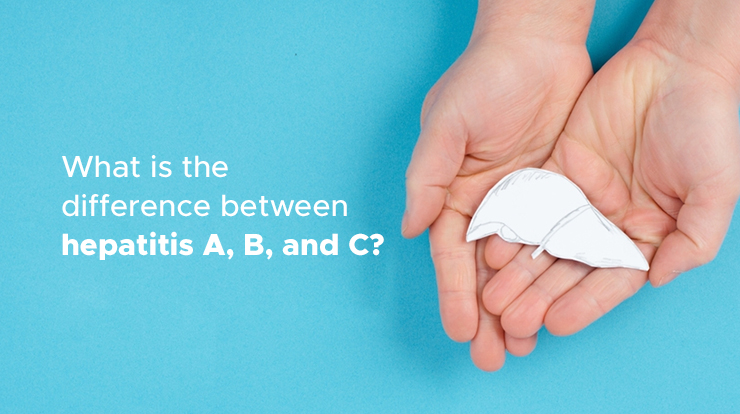
Hepatitis is the combination of two words, ‘ Hepa’ or ‘Hepatic’ means related to the Liver, and ‘itis’ means infection. There are five main strains of hepatitis, namely, A, B, C, D, and E, with different etiologies. While some are caused by ingestion of contaminated food, some are caused by blood-to-blood or body fluids contact. According to WHO, 354 million people globally live with a hepatitis B or C infection. In the WHO European Region, an estimated 13.3 million people live with chronic hepatitis B and an estimated 15 million people with hepatitis C.
Adding to the alarming stats, as per the CDC (center for controlled disease and prevention), since the outbreaks were first identified in 2016, 37 states have publicly reported 44,241 cases, 27,029 hospitalizations, and 420 deaths as of May 6, 2022.
Even though the prevalence of Hepatitis is high, not many people know about the difference in the strains of Hepatitis viruses and their transmission route. Here, we have highlighted the main differences in hepatitis A, B, and C and how is it caused?
Let’sLet’s begin by talking about,
Hepatitis is the inflammation of the Liver mainly caused by the virus. Other than the virus, hepatitis can be caused by medications, accumulation of excess fat in the Liver, and alcohol abuse. However, whenever a virus causes the disease, it is known as viral hepatitis. Whenever the Liver suffers from inflammation, its main functions like filtering blood, fighting infections, and more are also hampered.
Some viruses may last a short amount of time and are known as acute, while others can be long-lasting, known as chronic.
The basic difference lies between the causative agent, symptoms, and the mode of transmission. While the infection site is the Liver, the three strains of the virus differ in duration.
Hepatitis A is caused by the hepatitis A virus (HAV) and is now a common disease in the United States. HAV causes acute inflammation of the Liver that recedes on its own. However, if you are older or are already suffering from a liver disease like cirrhosis, you may need to see a doctor avoid serious complications. A vaccine for HAV is available and is effective in preventing the disease.
It is mainly spread through the fecal-oral route. For instance, person-to-person contact, food or water, while sampling stool in labs, and more. The incubation period for the hepatitis A virus is between 15 and 50 days, during which the patient is asymptomatic. Once the incubation period is over, symptoms like yellowing of skin & eyes, fever, stomach pain, etc., may present themselves, experience symptoms. Unlike hepatitis B and C, hepatitis A is a short-term illness.
There are several ways through which you can get hepatitis A:
Having Close Contact With Someone Suffering From Hav
Having Sex With Someone Who Has The Virus
Consuming Contaminated Food Or Drink
Consuming Food That’sThat’s Been Prepared By Someone With Hepatitis A Who Didn’tDidn’t Wash Their Hands After Urinating
Drinking Infected Water
Eating Food Prepared Using Untreated Water
Having Contact With Hav Contaminated Objects, Such As Toilets And Diaper
Sampling The Stool Samples In Labs And Not Wearing Gloves
Hepatitis B is caused by the hepatitis B virus (HBV). HBV can cause acute and chronic illness and spread through blood or other body fluids. Like hepatitis A, a vaccine is available to prevent HBV. However, chronic HBV can only be treated and controlled with oral medications. The prevalence of Hepatitis B is common in Asia and Africa. The symptoms of hepatitis B infection are vomiting, clay-colored stool, dark urine, abdominal pain, and more.
There are several ways through which you can get hepatitis B:
Having Sex With Someone With Hepatitis B
Sharing Vaccines Or Oral Drug Equipment
Having A Mother With Hepatitis B
Coning In Direct Contact With Blood Or Open Sores Of Someone With Hepatitis B
Getting Needle Sticks Or Sharps Injuries
Sharing Personal Items like Razors, Nail clippers, That May Come Into Contact With Blood Or Other Bodily Fluids Of Someone Suffering From Hepatitis B
Caused by the hepatitis C virus (HCV), but is always chronic and spreads mostly through blood. Unlike hepatitis A and B, there is no vaccination for hepatitis C. However oral medications can cure Hepatitis C, but there is no prevention. The symptoms of HCV include bleeding or bruising easily, itchy skin, poor appetite, ascites (fluid accumulation in the abdomen), and more.
There are several ways through which you can get hepatitis C:
Needlestick injury
Getting tattooed or pierced with the same needle as someone having HCV
Having a mother with hepatitis C
Having sex with someone who has hepatitis C
Sharing Personal Items like Razors, Nail clippers, That May Come Into Contact With Blood Or Other Bodily Fluids Of Someone Suffering From Hepatitis B
Even though the viruses present themselves differently, some hepatitis A, B, and C symptoms are all fairly similar. They may include:
Get Yourself Checked By The Experts
The difference in hepatitis A, B, and C is mainly in the treatment and some typical symptoms, and their transmission route and prevention. As mentioned earlier, hepatitis A only causes an acute illness, while hepatitis B and C can become chronic. Additionally, vaccines are available for A and B, which should be administered to children and adults.
Contracting viral hepatitis can lead to liver damage. If you believe you’ve been exposed to a hepatitis virus through needles, blood, or body contact, get in touch with the experts at AILBS for confirmation and treatment and get best Cost of Liver Transplant in india before the virus takes a toll on your Liver.


